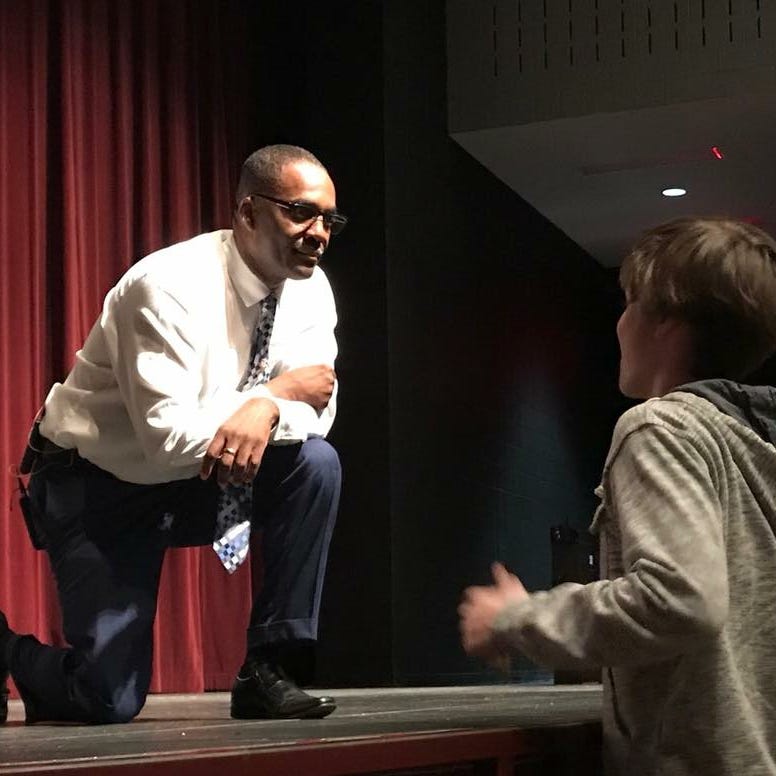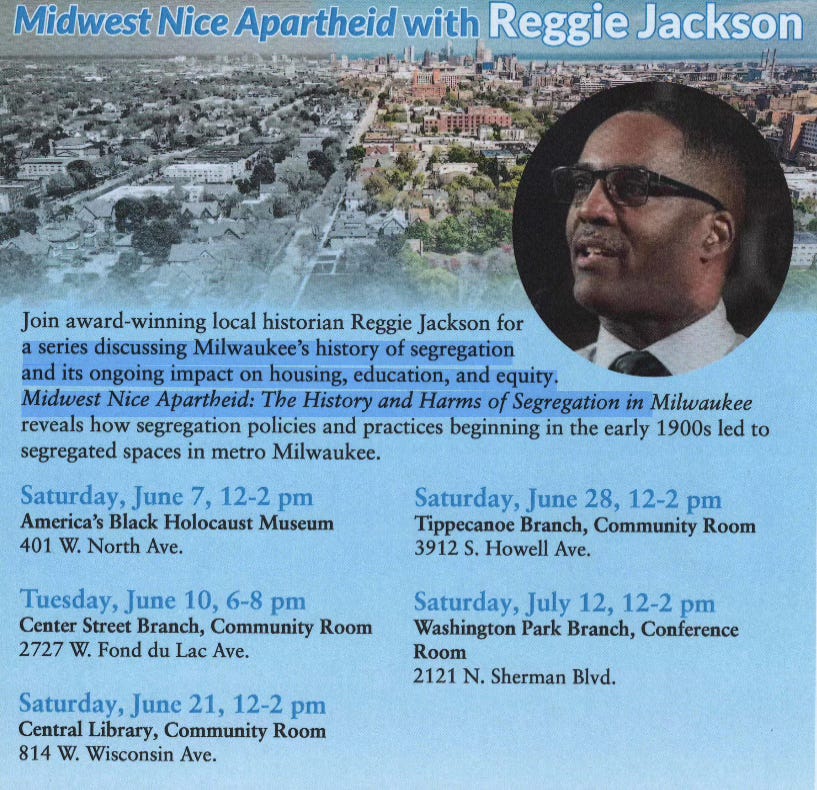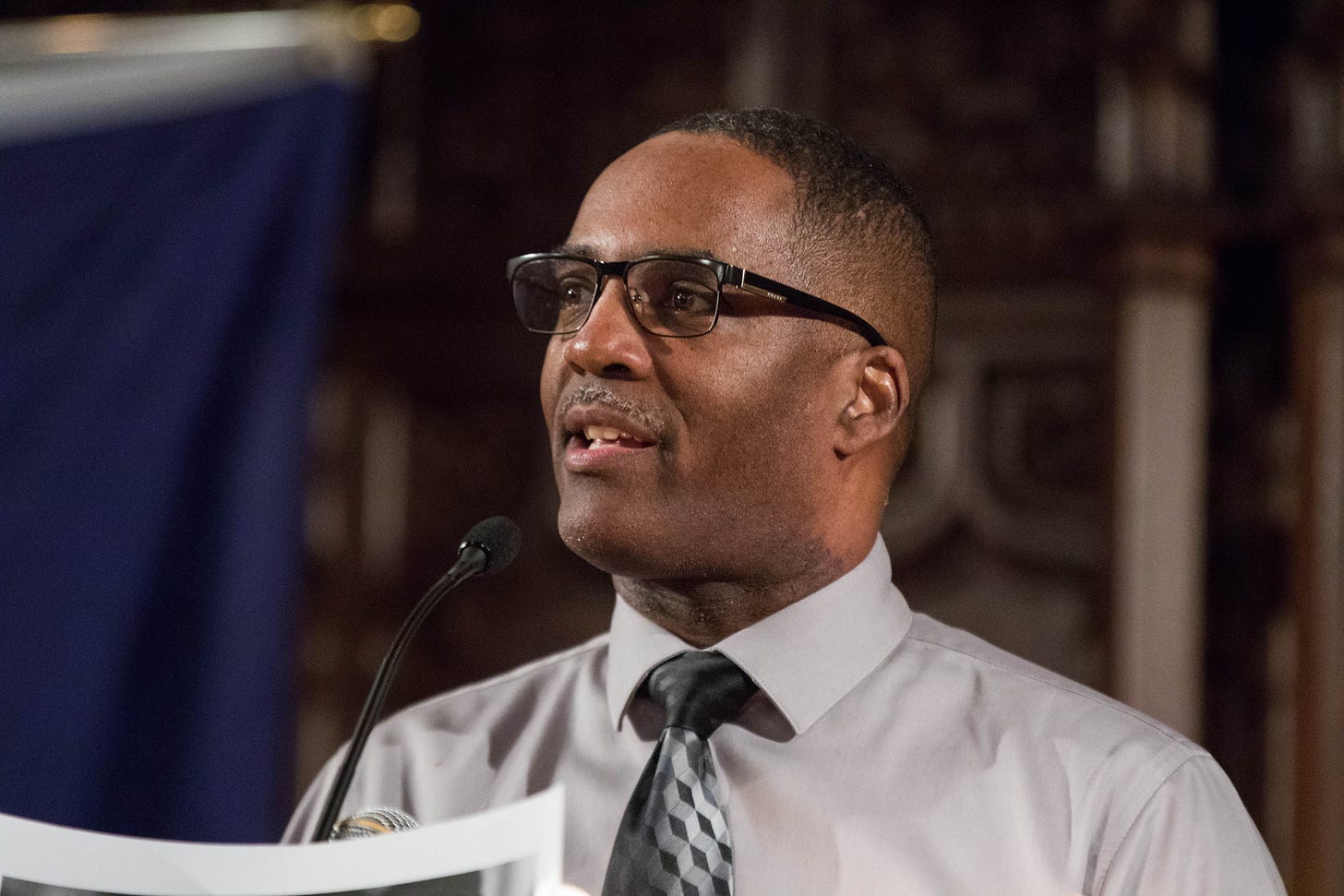The Trump administration’s attempts to erase history are regressive and personally offensive
“I would argue that, over the past decade-plus, Americans of all backgrounds have gotten to know one another better by studying the history of various groups in a way they never have before.”
The Recombobulation Area is a thirteen-time NINETEEN-TIME Milwaukee Press Club award-winning opinion column and online publication founded by longtime Milwaukee journalist Dan Shafer. The Recombobulation Area is now part of Civic Media.

“American history is longer, larger, more various, more beautiful, and more terrible than anything anyone has ever said about it.” James Baldwin, “A Talk to Teachers” (1963)
My lived experiences have offered me a very unique perspective on American historiography. At the age of 37, I became directly involved in the work of my mentor Dr. James Cameron, lynching survivor and founder of America’s Black Holocaust Museum (ABHM) in Milwaukee. Dr. Cameron and I became close friends, and he mentored me in his methods of uncovering and exposing the truths of the lives of African Americans in what he called the Black holocaust in America.
I learned the importance of truth telling as a part of studying and teaching about American history. I had never had someone tell me the stories he told. He felt we owed a debt to our ancestors to tell their stories in the most honest way possible. For me, it was a revelation. I had never seen history as a way to pay homage to my family before. Since then, I have dedicated my life to telling the truth about the African and African American experience. Just two years after Dr. Cameron died, at the age of 92, America elected the first person of color as President. It’s a moment I wish he could have witnessed after spending decades fighting for respect and social justice for his community.
It was nearly ten years later when I had the honor of meeting Bryan Stevenson, author of the award-winning book “Just Mercy,” at an event in Racine. I spoke to him about my connection to ABHM and Dr. Cameron. At the time, I was board president of the fledgling Dr. James Cameron Legacy Foundation. Stevenson told me he was very familiar with Dr. Cameron’s story and had met him a couple of times. Stevenson would eventually create the largest and most profound memorial to lynching victims in the world — the National Memorial for Peace and Justice and Legacy Museum in Montgomery, Alabama. The Legacy Museum tells the story of enslavement to mass incarceration in the United States. Both sites opened in 2018 and gained widespread recognition as what the Washington Post called “one of the most powerful and effective memorials created in a generation.” I had the profound experience of visiting both sites in 2021.
These memorials were aligned with the vision of truth-telling Dr. Cameron had spoken to me about. I went on a racial justice pilgrimage to Alabama, Mississippi and Tennessee. I walked across the Edmund Pettus Bridge in Selma; I stood in Kelly Ingram Park in Birmingham, the scene of Black children being sprayed with firehoses; I visited the Sixteenth Street Baptist Church, the scene of the bombing that killed four young Black girls in 1963; I visited where in the Dr. King stood on the balcony of the Lorraine Motel in Memphis where he was killed in 1968; and I visited the museum dedicated to Rosa Parks in Montgomery, Alabama. These experiences resonated with me because these important events occurred very close to the year I was born in Mississippi. I am a child of the Civil Rights era.
As I travel around the country giving talks on African American history, I always mention that this work is very personal to me because it allows me to tell my family’s stories. Slavery has a whole different meaning to me because I know the story of my family’s enslavement and captivity in South Carolina, Virginia and Mississippi. It is not just some random group of facts I have learned in school. My family was victimized by decades of disenfranchisement and Jim Crow policies and violence in Mississippi.
I am honored that I can tell these stories from their perspective. I don’t fear the erasure of that history as the current President feels hell-bent on erasing the ugly parts of American history from the collective imagination, pushing to erase history from federal government websites, museums and other institutions while claiming that this particular history is divisive.
I would argue that, over the past decade-plus, Americans of all backgrounds have gotten to know one another better by studying the history of various groups in a way they never have before. Yet, some are turned off by this shift in how we talk about American history. It has led to a great deal of cognitive dissonance because it offers a version of American history that does not glorify the nation.
For me, this recent attempt to erase this version of American history feels regressive. We are leading people back in time to a period where marginalization, discrimination, disrespect and injustice was legally forced upon groups of Americans until they fought back to change the course of history by demanding to be treated humanely. A great deal of blood, sweat and tears were shed by members of my community, and I owe them a debt of gratitude for their resilience.
Far too many Americans are in denial about the ugly parts of American history. Attorney Stanley Cohen wrote about denial in his book, “States of Denial: Knowing about Atrocities and Suffering.” He wrote about three forms of denial: literal denial (it didn’t happen), interpretive denial (it wasn’t what it seems), and implicatory denial (it doesn’t matter). All three of these states of denial are present in current attempts to clean up American history.
Reggie Jackson is a U.S. Navy veteran, and internationally renowned expert on race relations, the 2021 winner of the Carter G. Woodson Memorial Award from the National Education Association and the Association for the Study of African American Life and History. Reggie has conducted seminars at over a dozen college campuses around the state of Wisconsin while traveling to more than 50 communities conducting lectures, workshops and facilitated dialogue sessions on American history and race relations. He is the winner of more than 20 awards for his work as a journalist and activist supporting closer race relations. Reggie served as Head Griot (oral historian) at America’s Black Holocaust Museum for nearly two decades. He is the protégé of the museum’s founder Dr. James Cameron, and the author of the forthcoming book “Midwest Nice Apartheid: The History and Harms of Segregation in Milwaukee.”
Subscribe to The Recombobulation newsletter here and follow us on Facebook and Instagram at @ therecombobulationarea.
Already subscribe? Get a gift subscription for a friend.
Part of a group who might want to subscribe together? Get a group subscription for 30% off!
Follow Dan Shafer on Twitter at @DanRShafer and at BlueSky at @danshafer.bsky.social.





